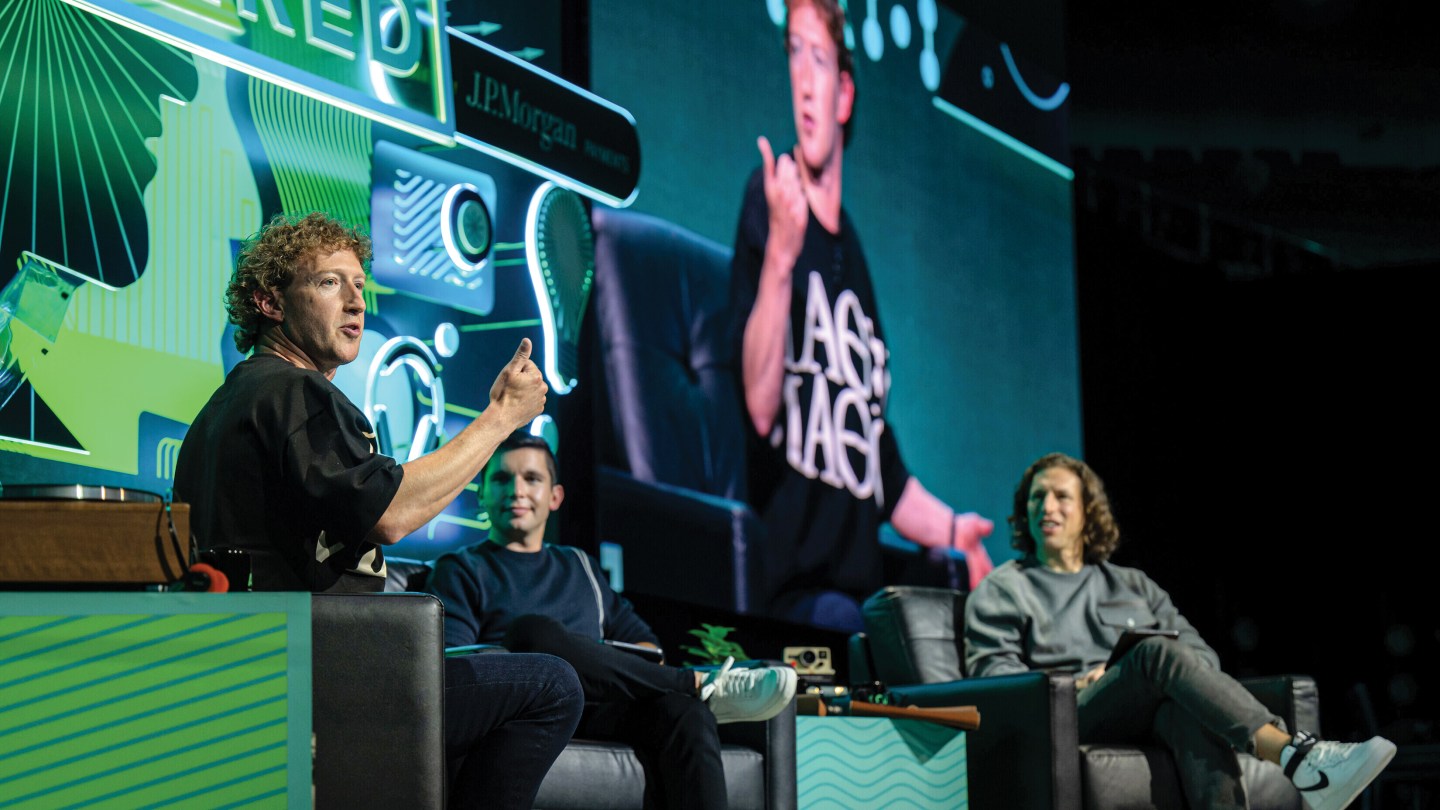The top of the podcast charts might not look like they’ve changed much over the past couple of years, but make no mistake: There has been a major shift in the currents of what’s popular in the medium. Lavishly produced, narrative-style podcasts have fallen out of favor. Chat shows and crime-of-the-week efforts rule. And being on camera is no longer optional.
“There is no question that there’s been a change, and what is working is what’s more affordable or cost-effective,” says Steve Goldstein, CEO of Amplifi Media and New York University podcasting professor.
Just take a look at the charts: Theo Von’s This Past Weekend podcast has been around for nearly a decade, but now it regularly places in the top 10. Self-help guru Mel Robbins has elbowed her way into the upper ranks, while a clutch of conspiratorial right-wing pundits like Megyn Kelly, Candace Owens and Tucker Carlson have amassed the audience and the clout to rival O.G. Ben Shapiro.
All are essentially low-fi chat shows — with video. “The dominant modality for podcast consumption is still audio — and not by a little — but the shows making the biggest noise right now are driven by YouTube,” says Sounds Profitable partner Tom Webster. “And it really is YouTube we are talking about, [not just] ‘video.’ “
My Favorite Murder’s Georgia Hardstark
Screenshot
Indeed, a couple years ago, Apple was the No. 1 method by which podcasts were consumed, followed by Spotify. But a recent study by Coleman Insights and Amplifi showed that YouTube is now No. 1, Spotify is second and Apple is third. “There is an expectation that all content lives on YouTube,” Goldstein says. “And I was shocked how much of podcasting is now consumed on big-screen TVs at home.”
Yet the rise of YouTube has some in the industry concerned that podcasts — along with their independent advertising streams — could effectively become yet another Google subsidiary. “What worries me is if the ‘podcast industry’ becomes just an unclear subset of YouTube video-makers, then we don’t have a podcast industry anymore,” says Podnews editor James Cridland. “We’re literally just a bunch of YouTubers.”
The chat show conquest comes at a time when the traditional talk show models are collapsing after years of podcasts gradually eroding their audiences. The cancellation of The Late Show With Stephen Colbert may have come as an industry shock, but it represents a long-foreseen first pillar to fall.
“When Conan O’Brien started a podcast [in 2021], people thought maybe it was a consolation prize versus a late night show. Now, the late night shows are getting canceled, and everyone wants to build what Conan already has,” says Red Seat Ventures chief Chris Balfe.
Alex Cooper, who has grown her popular Call Her Daddy podcast into a network of shows, puts it another way: “On-demand, longform podcasting has completely disrupted the talk show space. Podcasts are the new talk shows.”
And just like traditional talk shows, they’re also drawing live, in-person audiences — and quickly selling out. The Acquired podcast — which tells the stories of successful companies — isn’t even in Nielsen’s quarterly top 50, yet it sold out 6,000 seats in Radio City Music Hall in July for an event that included financial powerhouse guests Jamie Dimon, Barry Diller, Meredith Kopit Levien, Howard Schultz and Andrew Ross Sorkin. Here’s the kicker: The podcast’s event sold out before the guests were even announced.
Consolidation has been another trend, with some fretting over Amazon merging Wondery into Audible and cutting staff. “I think Audible is fully aware that they need a video strategy and Wondery adds that, but it was tied up in a lot of this longer-form narrative content, which, again, doesn’t scale particularly well,” Goldstein says.
Podcasts are adulting, in other words, which signals the medium’s maturity and increasing dominance. Potentially left behind, however, are the types of shows that have long made podcasting so special — one random civilian with a microphone who isn’t camera-ready, who organically gains a following without the help of company. Breaking through as in independent act has never been tougher.
“The average person is listening to eight podcast episodes a week,” Goldstein says. “So getting on the shelf space is really hard. If they’re going to add a podcast, they have to get rid of something.”
And, unlike shows on CBS, nobody topping these charts is getting canceled.

Morbid hosts Ash Kelley and Alaina Urquhart-White
Screenshot
This story appeared in the Aug. 13 issue of The Hollywood Reporter magazine. Click here to subscribe.
